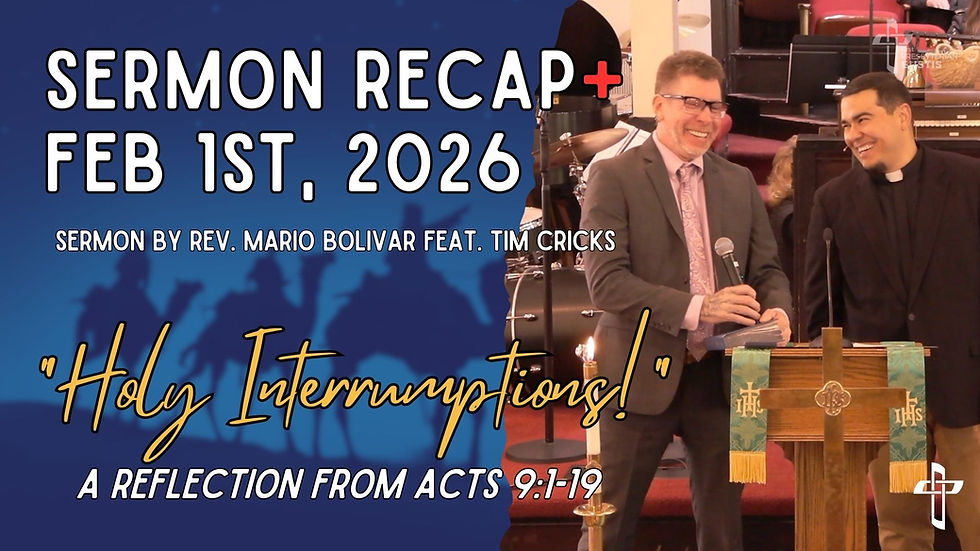John: Light & Life, Session 3
- Mario Bolivar
- Sep 6, 2023
- 2 min read
When we speak of God, a rich tapestry of names and titles unfolds before us. These aren't just mere labels but windows into the vast universe of divine significances, each with its unique context and historical reference. The various names we often use, such as Lord, Creator, Almighty, Rock, Protector, and Love, give us a glimpse into the multifaceted nature of God.
From the Scriptures, we encounter names like Elohim, which introduces God as our Mighty Creator and Covenant God. El-Shaddai paints the picture of the Almighty God, while Adonai echoes the sentiment of the Lord being our Master. El Olam speaks of the everlasting and eternal God who remains unchanging through the sands of time. Another profound name, JEHOVAH LORD, brings forth the image of a Self-Existent, Holy, Righteous, and Loving God.
One of the most intriguing names God gave to Moses was "I Am." Originating from Hebrew, it's translated as Yahweh or Jehovah. At its core, this name embodies God as the very essence of being, portraying Him as the ultimate source of all existence. It's as if God was telling the world, "I am the very definition of existence."
This profound understanding becomes even clearer when we dive into the Book of John. Here, Jesus boldly associates Himself with this divine name, suggesting His divine nature and role in the grand design. This association stirred emotions and provoked many, especially the Jewish leaders of His time. But John's Gospel didn't stop there. It vividly captured Jesus repeating the words "I Am," further solidifying His divine identity.
Within the Gospel, we also find Jesus presenting metaphors with the “I AM” sayings. Each of these statements was like a beacon, highlighting Jesus' significance to all believers. For instance, when Jesus said, "I am the bread of life," it wasn't just about sustenance but also salvation. It echoes the essence of Passover, where Jesus becomes the symbol of salvation for everyone. Similarly, referring to manna in the wilderness, this saying emphasizes Christ as the sustaining force in our faith journey.
Moreover, the act of Holy Communion, deeply rooted in Christian tradition, emerges as a significant ritual. In this sacrament, believers are not only reminded of Christ’s story of salvation but are also bound together in a sacred unity. The very act of "breaking bread" becomes a symbol, transcending cultural, community, and familial boundaries. Whether it signifies unity, sustenance, love, or something profoundly personal, it is an invitation to experience divine grace.
In conclusion, as we delve into the myriad names of God and Jesus's profound "I AM" sayings, we are beckoned to reflect upon God's identity and the depth of His relationship with humanity. Through introspection and contemplation, we have an opportunity to deepen our understanding and experience a more profound connection with the divine. In this journey, may we continually discover the infinite facets of God's love and grace.
Look at the study guide for more in this lesson...





Comments